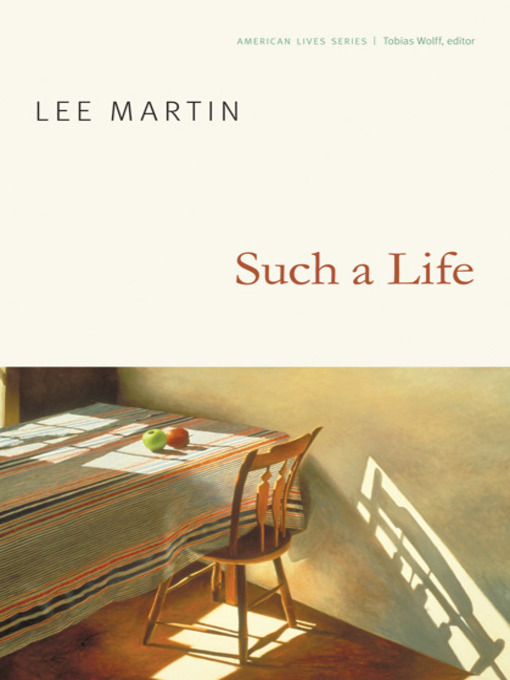
Such a Life
American Lives
کتاب های مرتبط
- اطلاعات
- نقد و بررسی
- دیدگاه کاربران
نقد و بررسی

April 2, 2012
Martin's latest book (after From Our House) is a collection of essays exploring family, memory, the act of writing the past, and the author's childhood and adolescence in Southern Illinois. "What did I know then of the noise our living makes?" Martin asks in the subtly moving "Colander," a meditation on his relationship with his mother and her pronunciation of the titular utensil ("I thought she said calendar"), which caused him to mistake her voice for that of his aunt. In "A Backward Spring," Martin draws a profound parallel between the bizarrely hard winter of 1830 that ruined a season of crops in the town of Egypt, Ill., and his mother-in-law's Alzheimer's, which makes Martin "determined⦠to be kind to her" in her inability to remember. In "Who Causes This Sickness?" he ruminates on his father's loss of his hands in a farming accident, and his own health issues, as a way of investigating the integrity of the narratives we impose on our experiences: "It's the story I told myself then, not knowing that there was another narrative running beneath it." Indeed, though his latest may be just one iteration of many possible tellings of his life, Martin's honest and well-paced prose makes the repeated attempts feel fresh, and most of all, worth it.

January 1, 2012
A novelist explores his rural, dysfunctional upbringing for hints of the writer he would become. For his third memoir, Martin (English and Creative Writing/Ohio St. Univ.; Break the Skin, 2011, etc.) assembles a series of personal essays that run roughly in chronological order, from his childhood in a small Illinois farm town to his more urbane, literate adulthood. His father looms large over many of these pieces, and understandably so: He lost both of his hands in a farming accident, becoming a sour and abusive parent, and many of the early pieces are concerned with Martin proving his manliness to adults. In "You Want It?," a particularly strong piece, the author recalls working a summer farm job at 14 and shrewdly lays out the subtle parrying among the boys, exposing the reasons why some boys bully and why some do or don't push back. Martin can seemingly turn any subject back to his hardscrabble youth: Asked to write about the Pittsburgh mansion of robber baron Henry Clay Frick, he bounces the industrialist's wealth against the lives of the working-class men he better relates to. The author's prose is carefully controlled, which is a welcome counter to the flash, drama and broad comedy that mark noisier (and more factually suspect) memoirs. But at times the narrative feels more bloodless than it ought to be. On a number of occasions Martin mentions a debate with his wife over their childlessness, but his avoidance of discussing the tension between them sticks out. In "Somniloquy," he strains to connect his childhood sleepwalking to his mother-in-law's sad decline from Alzheimer's, but some stories don't need such effortful metaphorical setups or so much attention on the author. Martin is an expert memoirist willing to explore every remembered utterance for emotional weight, though at times he keeps the reader at too far a distance.
(COPYRIGHT (2012) KIRKUS REVIEWS/NIELSEN BUSINESS MEDIA, INC. ALL RIGHTS RESERVED.)

February 1, 2012
If you ask him face-to-face, novelist Martin may not admit that he was once fat, but he does in print. In this third memoir, he reveals many moments of failure and embarrassment, beginning with a comic account of how as a boy his misunderstanding a word over the telephone became an often recounted family story. It is a rare light moment in a mostly bittersweet portrayal of life in a small town in southern Illinois, an area known as Little Egypt. Propelled by anger inherited from his father, a farmer who lost both of his hands in a corn-picker accident, Martin became for a time a teenage shoplifter, arsonist, and alcoholic, bent on behaviors that upset his parents, but his love of reading and writing helped him reform. Many of his autobiographical essays begin with him far removed from his hometown, a successful English professor looking back on an awkward and painful childhood, a situation with which many readers may identify. Both frank and compassionate, Martin's tales will entertain memoir readers as well as fans of his novels.(Reprinted with permission of Booklist, copyright 2012, American Library Association.)

























دیدگاه کاربران